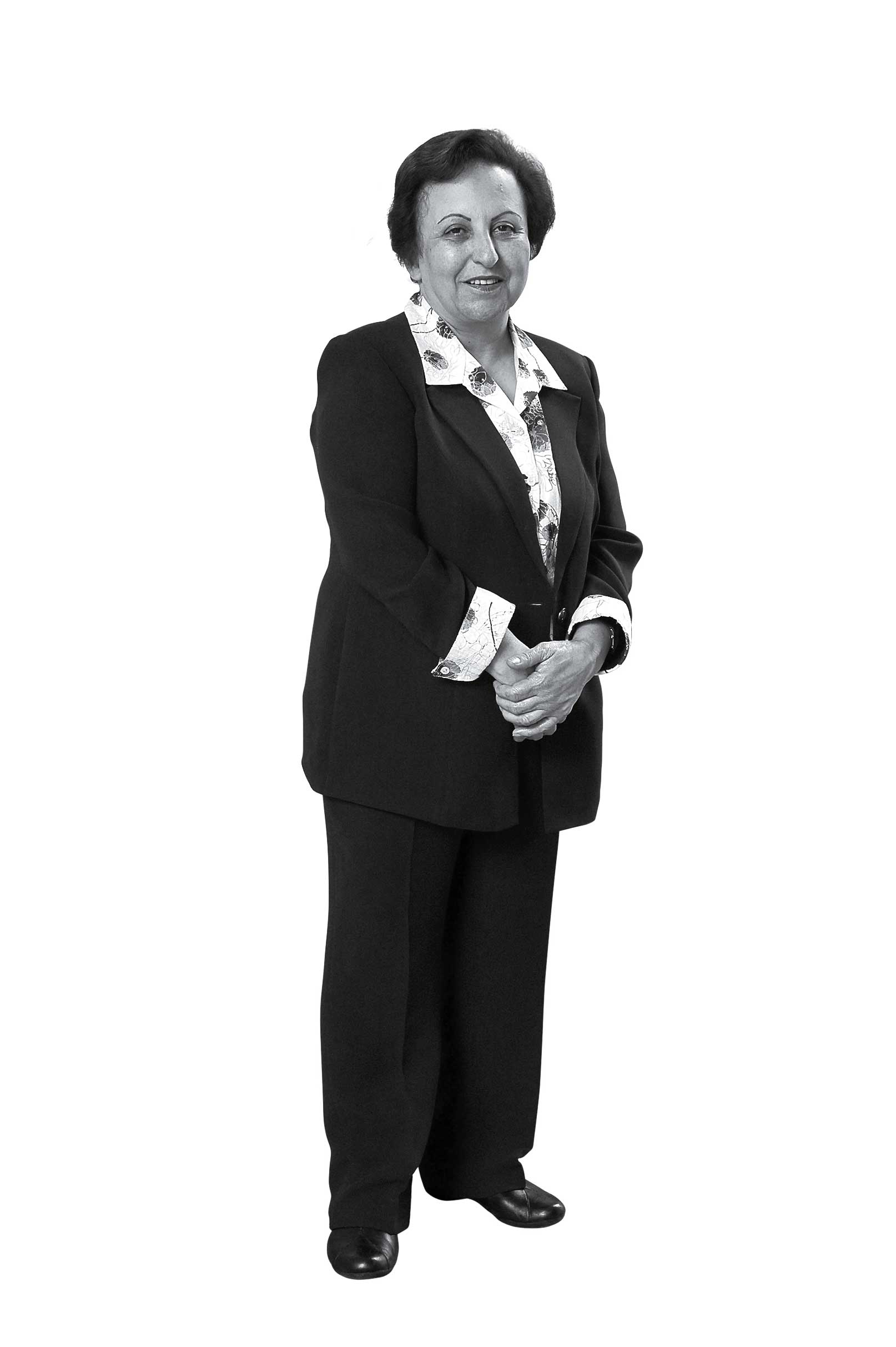
Why do you say in your new memoir, Until We Are Free, that the story of Iran is the story of your life?
Because my life story depicts what kind of government Iran has and how it treats people. I am not political competition for anyone. I’m just an attorney. And you can see how the government has harassed me. This is the way that they treat a Nobel Peace Prize winner who has access to microphones all over the world. Just imagine how they would treat a young journalist or unknown student who is arrested.
Were there some downsides to winning the Nobel?
The Nobel Peace Prize does not have a downside. But the government of Iran looked at it with suspicion. They raided my law office and my NGOs, and they closed them down. They confiscated all of my property, closed down my bank account, arrested my colleagues, who are in prison now. And the result is that I am living in exile.
Your husband was lured into a sexual encounter, filmed, imprisoned, beaten and told to denounce you on TV or face being stoned. Was that your lowest point?
No. This has happened to many other people, including some of my clients. I always encouraged my clients to talk about it, but it is a taboo in Iran to talk about such issues.
What did your husband say when you saw each other after four years?
He said my work was ruining our family life. And it was not going to result in bringing democracy to Iran, so how long did I want to continue doing it? My response was that this is the path I have chosen and I’m not going back.
Your sister was also imprisoned because of her connection to you. Has that put a strain on that relationship?
It has actually brought us closer. Because I empathized with her, and she found out what I have undergone too.
What has been the hardest part of doing this work?
The worst thing that I have suffered is the day that they closed down my NGO and arrested my colleagues. Some of them are still in prison.
Why don’t you like the phrase Arab Spring?
The rising of the people in Arab countries did not bring democracy to those countries. Spring is a season of eruption of the light coming, and there’s everything new and good about it. None of that happened. I prefer the suppressed rising of the people.
Do you expect to go home now that reformists are politically ascendant?
Nothing has changed. The President has very limited power. All the power rests with the Supreme Leader, who is there for life. [President Hassan] Rouhani is like Mahmoud Ahmadinejad, except he’s a little better-looking and he smiles more.
What’s the worst thing about living in exile?
When my dear colleagues pass away, I cannot participate.
Would you encourage your daughters to take the same path that you’ve taken?
My younger daughter has a Ph.D. in human rights, and this is the path that she has taken.
Do you support the lifting of sanctions on Iran?
Yes, because we can only sanction and harm the people. By placing sanctions against the government we can neither topple the government nor change its behavior. The best example of it would be North Korea. That government is still there, while the people are getting poorer every day.
Do you have any regrets?
Never.
No guilt for how family and friends have suffered?
I don’t feel guilt, but I’ve become very saddened. It’s the government of Iran that has to feel the guilt.
–BELINDA LUSCOMBE
Translated from Farsi by Shirin Ershadi
More Must-Reads From TIME
- The 100 Most Influential People of 2024
- The Revolution of Yulia Navalnaya
- 6 Compliments That Land Every Time
- What's the Deal With the Bitcoin Halving?
- If You're Dating Right Now , You're Brave: Column
- The AI That Could Heal a Divided Internet
- Fallout Is a Brilliant Model for the Future of Video Game Adaptations
- Want Weekly Recs on What to Watch, Read, and More? Sign Up for Worth Your Time
Contact us at letters@time.com